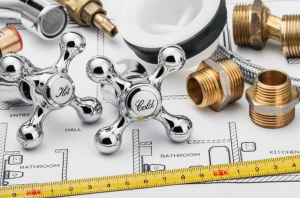 (BPT) – For many homeowners the biggest utility bill is electricity. Heating and cooling the home makes up nearly half of electricity costs, but the next biggest source is the water heater. Water heaters can account for up to 25 percent of total household energy use. Taking steps to improve the energy efficiency of a home with better insulation and more efficient furnaces and air conditioners can reduce energy costs significantly, as can making sure water heaters are operating properly.
(BPT) – For many homeowners the biggest utility bill is electricity. Heating and cooling the home makes up nearly half of electricity costs, but the next biggest source is the water heater. Water heaters can account for up to 25 percent of total household energy use. Taking steps to improve the energy efficiency of a home with better insulation and more efficient furnaces and air conditioners can reduce energy costs significantly, as can making sure water heaters are operating properly.
However, purchasing a high efficiency water heater does little good if the environment in which it operates is not right. The main culprit in reducing the efficiency of water heaters is hard water. Nearly 90 percent of American homes have hard water which contains high levels of calcium and magnesium. These minerals cause scaling, a buildup that clogs waterlines and plumbing forcing appliances to work harder and operate less efficiently. Hard water can reduce the efficiency of water heaters and increase electricity costs by as much as 48 percent according to the Battelle Memorial Institute.
The problem can be particularly severe with electric water heaters. These can accumulate up to 30 pounds of calcium carbonate, a rock-like scale, eventually damaging the heating element which will have to be replaced. The cost of hard water is not higher just because of reduced energy efficiency and higher electric bills; hard water also damages appliances like water heaters, dish washers, shower heads and faucets. These must be repaired and replaced more often as a result.
To determine if you have hard water, look for spots and scale build-up on fixtures. “A less obvious indication is the lack of that luxury feeling of a hot shower you get at a nice hotel,” says Michael Mecca of Performance Water Products. “That feeling is not because of the nice towels and soaps. It’s because nice hotels use soft water not only for their guests’ benefit but also to protect their investments in boilers, piping and fixtures.”
Kitchens benefit from soft water as well because soft water is up to 12 times more effective at cleaning dishes than increasing the amount of detergent used. Researchers also found that for washing machines, the most important factor in removing stains from clothing was water softness. Reduction of water hardness was up to 100 times more effective at stain removal than increasing the detergent dose or washing with hotter water. In fact, soft water can reduce soap use by as much as half.
Many water treatment companies offer free tests to homeowners to measure the degree of hardness in the water and offer appropriate systems that fit. “Hardness in water can vary widely in some parts of the country and pipe size, number of bathrooms, number of people in the house, types of showerheads and intended use all need to be considered for the right system,” says Mecca.
“Wells in particular are susceptible to hard water since municipal water departments often take care of the worst offenders such as iron-manganese-hydrogen sulfide. Even if you get municipal water you likely still have calcium and other hard water deposits and can benefit from a water softener. Systems for well water will cost a little more but it is well worth it,” he adds.
The only way to truly remove the calcium and magnesium from household water systems is with a salt-based water softener. These remove the scaling in the pipes entirely by running the incoming hard water through a resin filter that traps the calcium and magnesium in the water – as well as any iron, manganese or radium ions. It then replaces them with sodium ions.
A salt-based water softener is one home improvement that will not only pay for itself but add value to a home. A properly sized quality water softener appliance can save a homeowner thousands of dollars over its life in reduced soap and detergent costs, electricity, efficiency and extended life for expensive appliances.

